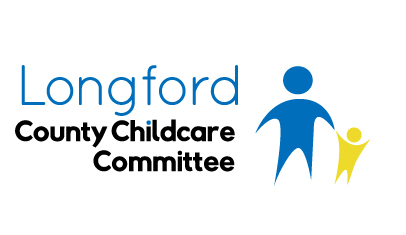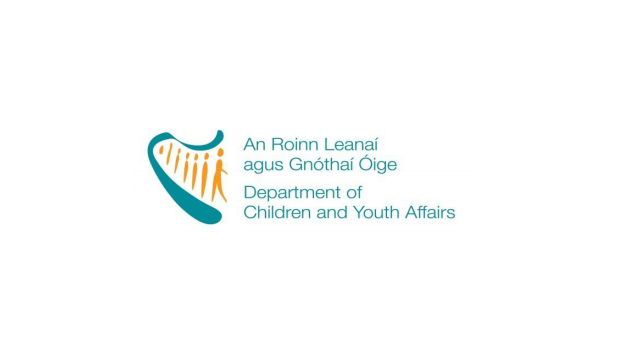Cyber Safety for Children and Young Adults
Joint Oireachtas Committee on Children and Youth Affairs Opening Statement – Minister Zappone
Wednesday 21st February, 2018
I would like to thank the Chairman and members of this Committee for the interest that they have shown in this important topic.
I believe the issue of safety for children engaging in online activity presents a very serious challenge. Protecting children from online abuse, bullying, grooming and sites with harmful content requires a whole of government approach.
Of course, the internet is not age-bound. The risks and dangers apply to people of all ages. But children are particularly vulnerable and they need greater protection.
I share the concerns about the importance of enhancing cyber security, particularly for vulnerable groups. This includes children and young people. Getting this right is a big challenge for Governments worldwide.
But of course, the challenges are not just for Government. They are for all of society. There is also a role for parents, children and industry.
The internet operates across borders. The challenges we meet often arise from decisions taken outside our jurisdiction. Some solutions are outside our control. However, we have the advantage that many of the world’s leading technology companies have a significant corporate presence here in Ireland. They can and must work with Government.
I believe that we must link responsibility for child welfare and protection with the provision of services. In any setting where children are involved, the provider of the service must be aware of the possible risks to children. And they must try to reduce these risks as much as possible. We must embed responsibility for child welfare and protection in all services to children.
I am conscious that many Government Departments are already doing good work, but of course we need to collaborate more and more. We need a truly joined-up approach. For example, dealing with the criminal behaviour associated with the internet is a matter for the Department of Justice and Equality; facilitating technology is the responsibility of the Department of Communications, Climate Action and Environment; the Department of Education and Skills plays a valuable role in relation to internet safety in schools; the Department of Health has a particular interest through mental health and wellbeing; and the Department of Business, Enterprise and Innovation has responsibilities in relation to industry and e-commerce.
My own Department has a role to play.
Child protection is our mission – and we must not and do not distinguish between online and offline communities.
We have reached a key moment for child protection in this country.
Mandatory Reporting of Abuse is a reality, every organisation working with young people must from next month compile and publish a Child Safety Statement while the budget of Tusla the child and family agency is passing €750m for the first time.
These are concrete real steps – they offer protections to our young people in all environments including online.
I am also very concerned that the voices of children and young people will be heard and acted upon when we make decisions on internet safety. Without their input, their perspectives and their knowledge, then our policies simply will not work.
My Department has overall policy responsibility for ensuring that the voices of children and young people are heard in relation to decisions that affect their lives.
In addition my Department undertakes and supports consultation and participation processes both within its own policy remit and across Government as requested. This includes developing structures to enable such participation in decision making by children and young people. These structures include both Dáil na nÓg and Comhairle na nÓg.
This Committee recently met with groups of young people from Counties Clare and Wicklow Comhairle na nÓg on this important subject. I am always pleased when colleagues in the Oireachtas take the time to listen to what young people have to say. As I said earlier today, it is only through engagement with young people that we can find the solutions that will work.
The consultation undertaken by Wicklow Comhairle na nOg resulted in a Charter on Cyber Bullying. This Charter makes requests of us all. It asks that we have a plan for dealing with cyber bullying and that we protect them, their rights and their well-being. The Charter also speaks to bullies, to those being bullied, to bystanders and to all young people. While this initiative is local to Wicklow County, the message from young people can be considered more widely – technology per say is not the problem, people’s behaviour is the problem.
You also met with Clare Comhairle na nOg and heard of the very successful initiative with McAfee which has resulted in a Cyber Safety Programme. Clare Comhairle na nOg were delighted to see the Cyber Safety programme rolled out through Clare Youth Services and other Youth Work Ireland regions.
These initiatives developed by young people are real examples of a global and universal problem finding local solutions, generated and owned by young people themselves.
My colleagues, Ministers Flanagan, Naughten and Bruton will address the actions relevant to their Departments.
I warmly welcome Minister Naughten’s recent announcement of his Open Policy Debate to take place on 8 March next. It will involve a range of Government Departments, not just those here with your Committee today. Everyone wants to figure out what is the right thing to do and everyone wants to help.
Last November, I met with Ministers Naughten and Flanagan to discuss the cross-Government collaboration that is needed. A lot of work is being done by individual departments. However we need to develop an action plan involving all relevant departments to ensure that our actions are coordinated, complementary and robust.
I am committed to playing my part in a co-ordinated cross-Government approach. While my Department does not have a lead responsibility in this area, it does play an important role in a wider range of actions across a number of departments.
· As I previously mentioned I commenced all remaining provisions of the Children First Act 2015 on 11 December, 2017. The ongoing role of the statutory Children First Interdepartmental Implementation Group, which is chaired by my Department, is to ensure consistent implementation of the provisions of the Children First Act and Guidance across Government Departments, the HSE, the Gardaí and Tusla. Issues in relation to internet safety which have a child protection dimension and which require cross-Government collaboration or support can be raised in the context of the Group.
· The National Youth Health Programme is a partnership between the HSE, the National Youth Council of Ireland and my Department. It aims to provide a broad based, flexible health promotion / education support and training service, to youth organisations and to all those working with young people in out-of-school settings.
· The ‘Web Safety in Youth Work’ resource, available on the National Youth Council’s website, provides valuable advice to young people on reporting online behaviour and on passing on concerns about the protection and welfare of a child or young person.
· In seeking to address the problem of bullying in all its forms we must tackle its root causes. This includes a focus on tackling prejudice, including homophobia, where it exists in our schools and wider society. My Department is currently developing an LGBTI+ National Youth Strategy, which is the first of its kind in the world. It will also contribute towards the Government’s broader commitment to continue to strive for full inclusion of LGBTI+ people in Ireland.
I look forward to the discussion at this Committee today and to the Open Policy Debate on 8 March. I think it would advance matters significantly if we agreed to develop an Action Plan to co-ordinate the different responsibilities of Government Departments and agencies. It would be even more effective if this could be agreed across society with all involved including providers.
Once again I want to thank the Committee for your initiative in this area which I believe can help us make progress.

